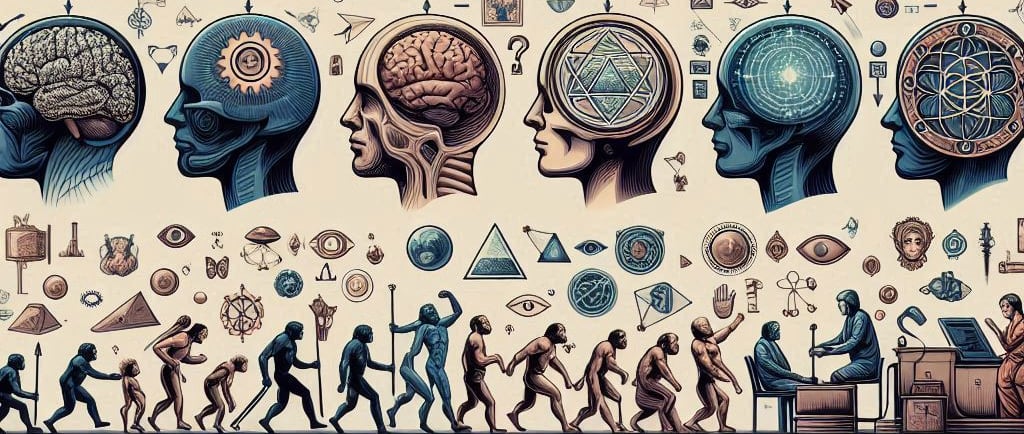The Evolution of the Human Brain: From the Stone Age to Modern Times
Discover the fascinating journey of the human brain from the Stone Age to the digital era. This blog explores how our cognitive abilities and psychological understanding have evolved through various civilizations, highlighting key milestones and their impact on modern thought. Dive into the history of human cognition and learn how our brains have adapted to meet new challenges and opportunities.
Team Fossoria
10/27/20242 min lire


The human brain is a marvel of evolution, reflecting our journey from primitive beings to the sophisticated individuals we are today. This blog explores the fascinating evolution of the human brain and psychology through various civilizations, from the Stone Age to the present day.
The Stone Age: The Dawn of Human Cognition
During the Stone Age, early humans developed basic survival skills. The brain's size and complexity began to increase, allowing for the development of tools, language, and social structures. This period marked the beginning of cognitive evolution, with the brain adapting to new challenges and environments.
Ancient Civilizations: The Birth of Complex Thought
As humans transitioned from nomadic lifestyles to settled communities, ancient civilizations like Mesopotamia, Egypt, and the Indus Valley saw significant advancements in brain function and psychology. The development of writing, mathematics, and early forms of governance required more complex cognitive abilities. The brain's prefrontal cortex, responsible for decision-making and social behavior, became more developed
Classical Antiquity: Philosophical and Scientific Inquiry
The Greek and Roman civilizations were pivotal in the evolution of human thought. Philosophers like Socrates, Plato, and Aristotle explored concepts of the mind, consciousness, and behavior. This era saw the beginnings of psychology as a discipline, with the brain being recognized as the center of thought and emotion.
The Middle Ages: Bridging Ancient and Modern Thought
During the Middle Ages, the brain's understanding continued to evolve, albeit slowly. The period was marked by the preservation and translation of ancient texts, which laid the groundwork for the Renaissance. The brain's role in human behavior and mental processes remained a topic of interest, setting the stage for future scientific exploration.
The Renaissance: A Rebirth of Knowledge
The Renaissance was a period of renewed interest in science and the arts. Advances in anatomy and physiology, driven by figures like Leonardo da Vinci, provided deeper insights into the brain's structure and function. This era marked a significant leap in understanding the brain's role in human cognition and creativity.
The Enlightenment: The Age of Reason
The Enlightenment brought about a scientific revolution, with thinkers like Descartes and Locke delving into the nature of the mind and consciousness. The brain was increasingly seen as a complex organ capable of reason and thought. This period laid the foundation for modern psychology and neuroscience.
The Modern Era: Unraveling the Brain's Mysteries
In the 19th and 20th centuries, the field of psychology emerged as a distinct scientific discipline. Pioneers like Freud, Pavlov, and Skinner explored the brain's role in behavior and mental processes. Advances in technology, such as MRI and PET scans, have allowed scientists to study the brain in unprecedented detail, leading to breakthroughs in understanding mental health and cognitive function.
The Digital Age: The Brain in the Information Era
Today, the human brain continues to evolve in response to the digital age. The constant influx of information and the rise of artificial intelligence are shaping our cognitive abilities and psychological well-being. Understanding how modern technology impacts the brain is a growing area of research, with implications for education, work, and mental health.
The evolution of the human brain and psychology is a testament to our adaptability and resilience. From the Stone Age to the digital era, our brains have continuously evolved to meet new challenges and opportunities. By understanding this journey, we can better appreciate the complexities of the human mind and its potential for future growth.
